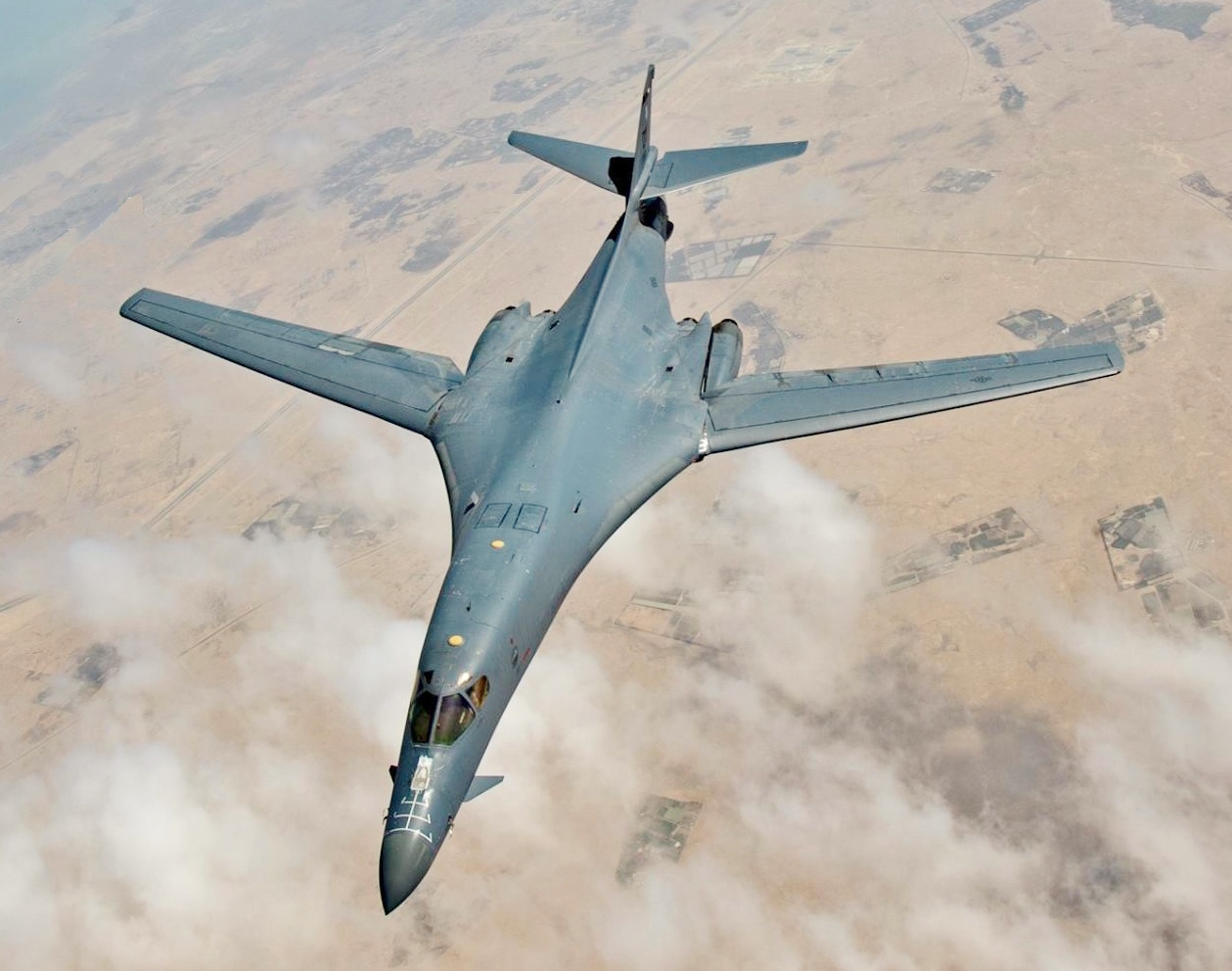Russia and China have been aggressively pursuing the development of hypersonic weapons compared to the US. In an attempt to bridge this gap, the US Air Force is planning to equip its Cold-War-era B-1 bombers with hypersonic weaponry until its super-advanced B-21 stealth bomber is ready for induction.
The B-1B Lancer is a multi-role, long-range bomber. It can fly intercontinental missions without refueling and can also penetrate current and potential advanced enemy defenses.
This Cold War-era bomber was originally designed to carry nuclear weapons onboard. Throughout 1991, the B-1 was a part of the single integrated operational plan (SIOP) and served its nuclear deterrence role under the same.
The conversion of the B-1B to a conventional role was a gradual process that began in 1993. The conversion was completed in October 1997. The bomber is capable of performing a wide variety of missions, including missions that require a conventional weapons carrier for theater operations.

The B-1B’s low radar cross-section is complemented by electronic jamming equipment, infrared countermeasures, radar location, and warning systems. Together, they form an integrated defense system for the aircraft.
US Approves First Overseas Squadron Of F-35A Jets; F-35Bs Get Clearance To Operate From Japanese Carrier
Tempest – UK’s Sixth-Gen Fighter Jet Program Tempts Japan To Join In; London Set To Sign Contract With Key Partners
The bomber’s swing-wing design and turbofan engines grant it greater range and high speed at low levels. Additionally, they enhance the bomber’s survivability. Once the B-1B is airborne, the wings are positioned for the greatest cruise distance or high-speed penetration.
The bomber has several world records for speed, payload, and distance to its credit.
Hypersonic Missile Test
The US plans to add hypersonic weapons to these mighty aircraft that are currently stationed at Dyess Air Force Base. This will essentially turn the B-1 into a ‘missile truck’.
Gone ‘Berserk’ In 2016, US Navy Awards Lockheed Martin Contract To Produce Trident II Sub-Launched Ballistic Missiles
The Cold War-era external weapons carriage capability of the bomber will be reactivated to accommodate the new munitions. Reportedly, the work to reactivate the hardpoints of the B-1 has already begun. Six of the eight external hardpoints of the B-1 can be reinstated.
It has been confirmed that the modified B-1 bomber will act as the launch platform for boost-glide vehicles as well as air-breathing missiles. This hints towards the potential utilization of the AGM-183A Air-launched Rapid-Response Weapon and the Hypersonic Air-Breathing Weapon Concept (HAWC), respectively.
Boeing officials highlighted how the project will enhance the existing B-1 fleet, keeping the B-1 mission active till the Air Force transitions to the B-21 Raider.
The bomber, which was earlier equipped for conventional combat, will not be dropping bombs like it used to but would send them at Mach speeds toward a distant target.
How the plan shapes us will depend on the funding of the project, which won’t be cheap.
The USAF is simultaneously also continuing on with its plans to withdraw the B-1 from service. Most recently, it sent 17 of the 60 remaining aircraft to the boneyard.
The planned weapons upgrades for the B-1 are increasingly being viewed not just as a means of keeping up with the rapid hypersonic weapons developments in Russia and China, but also as a way of providing cover for the B-52H Stratofortress fleet.
This fleet is currently undergoing improvements, which include an ambitious re-engining program that will see fleet availability reduced while it is underway.
With the B-21 slated to enter the service from the mid-2020s, the B-1 might not actually have a lot of time left to serve.
Frank Kendall, the US Air Force Secretary, recently announced that Northrop Grumman is producing five B-21 Raider stealth bomber test aircraft at its Palmdale facility in California, the Eurasian Times had earlier reported.
The Raider program will utilize decades worth of experience gathered from the development and production of the B-2 stealth bomber. Open-source information regarding the program shows that the B-21 is likely to be a stealth aircraft.
It will probably have systems in place to allow manned as well as unmanned flight. As an Unmanned Combat Aerial Vehicle (UCAV), it could be armed with a wide variety of deadly weapons.
There is much speculation over the kind of sensors that will be onboard the Raider. It may come equipped with a sensor similar to the ones the F-35 boasts of. These are top-of-the-line electro-optical targeting systems that enhance the air-to-ground capabilities of the fighter.
The first operational examples of the B-21 are expected to enter service at the Ellsworth Air Force Base in South Dakota, sometime in the mid-2020s.
Until the development of the B-21, as well as the transition to this model, is complete, the B-1 bomber will be upgraded and lined up with hypersonic missiles.
- Written by Shreya Mundhra/EurAsian Times Desk
- Follow EurAsian Times on Google News